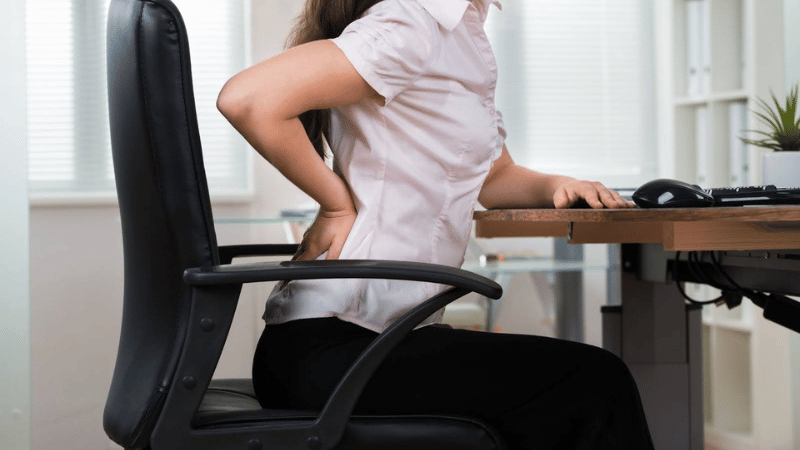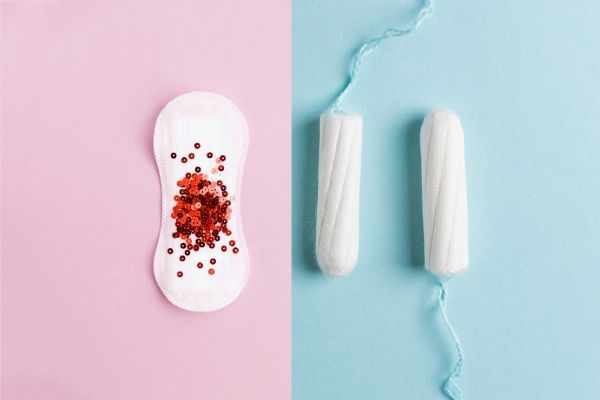
Many women aren’t aware of what fibroids are or when they require treatment. If working with fibroid symptoms is interfering with your everyday life, there are effective solutions that don’t require invasive surgery.
Working with fibroids can often be debilitating, especially if you have severe symptoms. If frequent abdominal discomfort is eating up your sick days or keeping you from concentrating, you may be living with the symptoms of a uterine fibroid.
Fibroids are common during career-focused years, with 70-80% of women developing fibroids before age 50.¹
Many women aren’t aware of what fibroids are or when they require treatment. If working with fibroid symptoms interferes with your everyday life, there are practical solutions that don’t require invasive surgery.
Our experts offer a non-surgical, minimally invasive, outpatient procedure called Uterine Fibroid Embolization (UFE) that will quickly have you back to work.
What are Fibroids?
Fibroids, or myomas or leiomyomas, are benign tumors of the uterus and uterine walls. They are composed of tissue and muscle and can range from as small as a seed to bigger than a baseball. Only one fibroid can be present, or a cluster of multiple fibroids can develop. Although fibroids are rarely cancerous, they can expand the uterus and even affect other surrounding organs when they enlarge or grow in number.
While doctors do not know the specific reasons a fibroid forms, there are certain risk factors that contribute to its formation, such as:
- Obesity
- Menstruation at an early age
- Genetic predisposition toward fibroids in the family
- Certain races, such as African-American women
- High levels of estrogen and progesterone
- Birth control use
- Vitamin D deficiency
- Unhealthy diet
- Increased alcohol usage
If you are missing work due to heavy periods or are experiencing pelvic pain, it could be from fibroids. Learn more about fibroid symptoms and if you’re at risk with our symptom checker below.
Talking about Fibroids at Work
There needs to be more awareness surrounding fibroids, as 28% of women have never heard of them.² As a result, some women find speaking openly about their condition with their boss and colleagues helpful. Here are a few things to keep in mind while having this conversation at work:
- Keep it professional: Spare your coworkers the intimate details, such as how many tampons you use during the work day or how painful sex is with your partner.
- Present educational resources: Offer to share an informative article about fibroids and their symptoms.
- Talk to your boss: Discuss the possibility of working from home during your cycle’s heaviest or most painful days.
When discussing this with your boss, if you are considering fibroid treatment, this may also be a good time to arrange some time off. Although one in five women believe a hysterectomy is their only option (which requires a six to eight-week recovery), the reality is that uterine fibroid embolization (UFE) is another effective treatment that has most patients back to work within one to two weeks.
Working with Fibroids

If you are a career woman, your work may define you and is probably an important element of your identity. A full-time career can be demanding and requires good health.
If you’re tired of these symptoms interfering with your daily life, here’s what you need to know about uterine fibroids.
Heavy Bleeding from Fibroids and Work

One of the most common symptoms of fibroids is heavy bleeding during menstruation, as well as fibroid spotting between periods. As a precaution, we recommend keeping a “period survival kit” at work to keep you comfortable and avoid potentially embarrassing situations. Consider including:
- A supply of pads, tampons, and pantyliners
- Extra clothing, including undergarments
- Pain relievers such as Advil, Tylenol, or Naproxen
- A hot water bottle or heating pad
- Package of wipes to assist with cleaning up
- Herbal tea, chocolate, and satisfying snacks
While living and working with fibroids can be a challenge, it doesn’t have to keep you from living your life. If you’ve been struggling to control fibroid symptoms related to heavy bleeding and period cramps at work, there’s help available.
Fibroid Pain and Work

Aside from heavy bleeding, another common symptom is fibroid pain. This pain includes:
- Pelvic pain or pressure
- Lower back pain
- Leg pain
Typically, you may even experience these different pains simultaneously. For example, when you have fibroids and lower back pain, you may also experience leg pain at the same time. Experiencing all this pain at once, especially if it’s severe, can make working with fibroids even more challenging.
Luckily, treatment options are available. Uterine fibroids are treatable with a variety of medical methods, including uterine fibroid embolization.
The Mental and Emotional Impact of Fibroids

Your personal life, self-image, and mood can also suffer, affecting your ability to concentrate while working. Even the smallest things might take up mental space, such as considering whether you feel comfortable wearing light-colored clothing.
Many of our patients have reported they were forced to miss extensive days at work because, on some days, their severe cramps or heavy periods were extremely difficult to manage. Along with potentially missing entire days of work due to physical symptoms, you might also be irritable, grumpy, and generally unpleasant when you are at work.
If fibroid symptoms are making it difficult for you to work because of emotions, mood, or anxiety, we recommend you seek treatment. Work relationships can be just as important as personal ones when building your career – so you’ll want to take extra care to keep them positive.
Are Fibroids a Disability?
For women facing severe symptoms as a result of fibroids that impede their ability to work, it’s important to understand whether uterine fibroids are considered a disability for legal reasons. Under the Americans with Disabilities Act (ADA), pregnancy is not typically considered a disability if the symptoms are mild, but “pregnancy-related impairments” can fall under the ADA, depending on the severity of the symptoms.³ Pregnancy-related impairments include but are not limited to, uterine fibroids, an insufficient cervix, and conditions such as pregnancy-related anemia.4
Women who served in the military could also claim uterine fibroids as a disability to receive VA disability benefits, as long as it can be proven that the fibroids are a result of serving in the military.5
FMLA for Fibroids

The Family and Medical Leave Act (FMLA) covers job-protected leave from work for family and medical reasons, and employees are eligible as long as:6
- They’ve worked under a covered employer for a minimum of 12 months
- Worked at least 1,250 hours of service with the employer during these 12 months before the start of their FMLA leave
- Employed at a location where there are 50 employees within 75 miles
You can check if you can use FMLA for fibroids treatment or even if your symptoms impede your ability to work. Some states also have their own FMLA policies, so make sure to research your state’s policies related to FMLA.
LEARN MORE ABOUT FIBROIDS TODAY
Stop Fibroids from Interfering with Your Career
At USA Fibroid Centers, we want to help women suffering from fibroids by treating their symptoms so they can succeed in their careers and beyond. If frequent issues with fibroid symptoms are eating up your sick days or keeping you from concentrating at work, it’s time to get help.

Discover Non-Surgical Fibroid Treatment
At USA Fibroid Centers, we are committed to spreading awareness about fibroids, possible treatment options, and all of your fibroid-related questions. With help, you can stop missing work due to heavy periods, pain, and other fibroid-related symptoms.
Schedule a consultation today with one of our expert interventional radiologists to learn more about our minimally invasive, non-surgical, outpatient fibroid treatment and stop having to suffer while working with fibroids.
You’ll soon discover how uterine fibroid embolization (UFE) can alleviate your fibroid symptoms, to work, and your usual activities. We can discuss if UFE is right for you and what your recovery might look like.
REQUEST A CONSULTATION WITH A FIBROID SPECIALIST
References
- Katz, Tiffany A., Qiwei Yang, Lindsey S. Treviño, Cheryl Lyn Walker, and Ayman Al-Hendy. 2016. “Endocrine-Disrupting Chemicals and Uterine Fibroids.” Fertility and Sterility 106 (4): 967–77.
- The Fibroid Fix, August 29, 2017.
- “The Federal Register,” Federal Register, accessed March 14, 2024.
- “The Federal Register,” Federal Register, accessed March 14, 2024.
- Kevin McVeigh, ed., “VA Disability Rating for Uterine Fibroids,” Veterans Guide, March 13, 2024.
- “Fact Sheet #28F: Reasons That Workers May Take Leave under the Family and Medical Leave Act,” DOL, accessed March 14, 2024.



